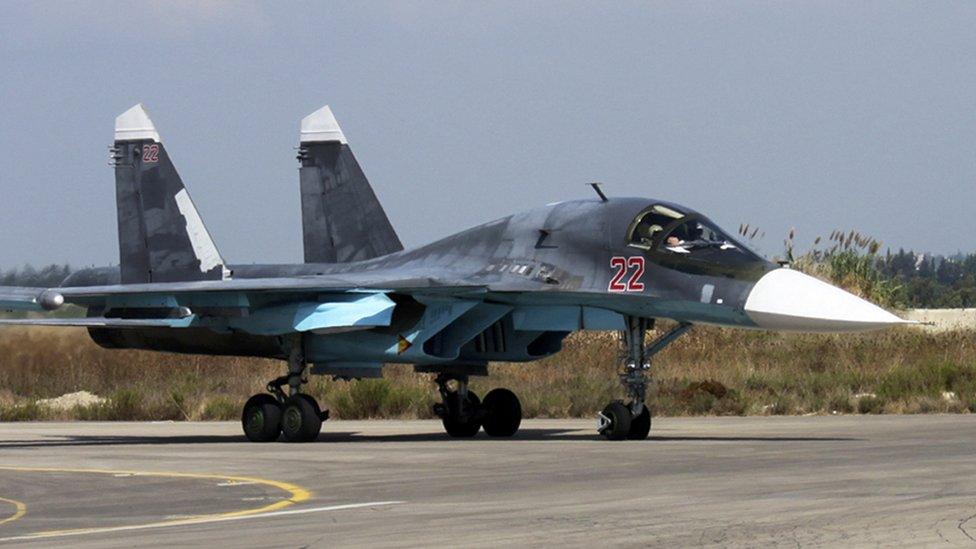Turkey row: Russian tourists told to seek new destinations
- Published
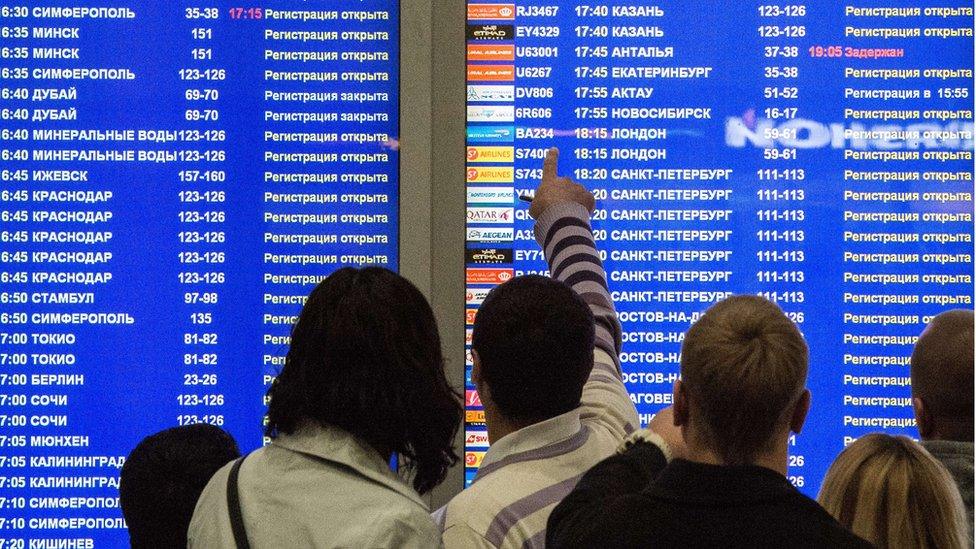
Turkey was the most attractive tourist destination for Russians in 2014
This week brought the first real snowfall in Moscow, along with the news that yet another winter getaway is off-limits.
But Russians have responded with defiance to the ban on holidays to Turkey.
Many see the move as appropriate payback for the shooting down of a Russian fighter jet, described by a furious President Vladimir Putin as a "stab in the back".
It's the second popular destination to be banned in under a month. Flights to Egypt were halted in early November, following a terror attack on a plane full of Russian tourists.
"Some things are more important than beaches, the sea and all-inclusive holidays," anchorman Dmitry Kiselyov boomed in his influential weekly news round-up on state television.
"Russians no longer see Turkey in the same way," he declared, thereby ensuring that statement becomes fact.
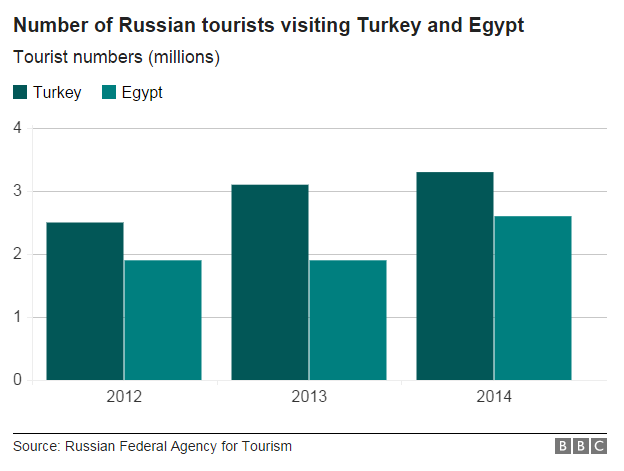
Last year, Turkey was the top choice by far for Russians - attracting 3.2 million tourists; 2.6 million travelled to Egypt.
When Egypt's beaches became inaccessible, many Russians were re-directed to the Turkish coast.
Still, people here seem broadly resigned to what has happened - even supportive.
"I think it's the right response. Turkey has shown it's a traitor," said Andrei, taking a cigarette break from work, out in the snow.
"According to the news, they are working with IS [so-called Islamic State] so I don't think it's safe there," he added.
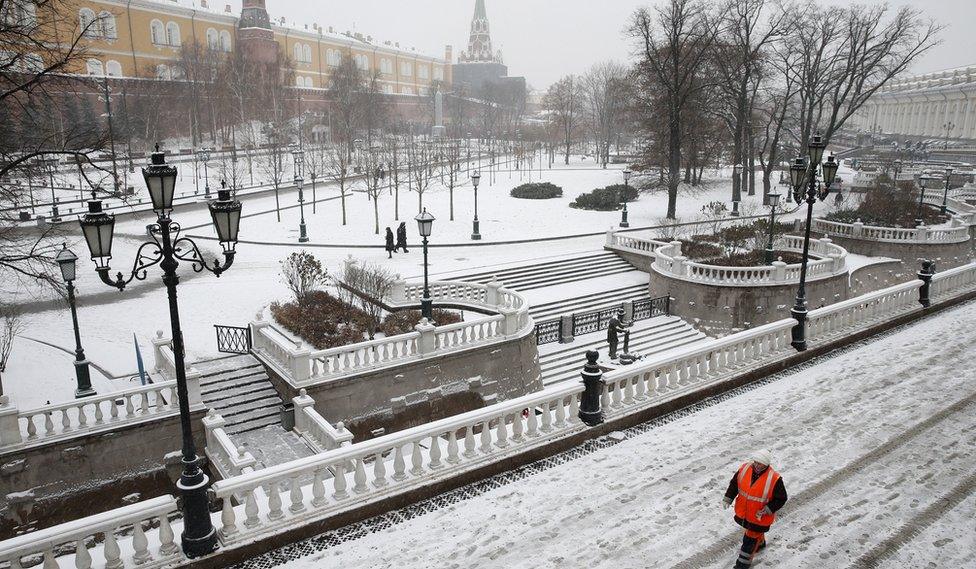
Muscovites will now have to try alternative winter getaways, such as Thailand or Vietnam
That is the message that President Vladimir Putin has stressed for the past week.
He has accused Ankara of siding with terrorists by targeting a jet conducting airstrikes in Syria, against what he says were armed extremists.
Staycations?
The Turkish holiday ban has been sold as an issue of national security.
"I'm ready to support our government. I think we can find alternative destinations until the situation is resolved," said Evgenia, in a Moscow underpass.
She has visited Antalya many times and had planned to return this summer, but shrugged off the thought that could be cancelled.
"The world is a big place!" she smiled.



Scheduled flights to Turkey are still running and the embassy stresses that Russian tourists are welcome. A spokesman said there were no plans to introduce visa requirements for Russians, despite Moscow doing that for Turks.
But any travel agencies caught selling Turkish tours have been warned they face sanctions.
Russia's Federal Tourism Agency argues the ban will have a "hugely positive" impact on domestic tourism.
Its head sees Russians opting for "staycations", injecting their holiday funds into the local economy instead.
Rouble trouble
Others are much more sober.
They point to a lack of hotel capacity in Russia and poor infrastructure: "Patriotic" resort choices don't generally offer the quality those who holiday abroad have grown used to.
So travel agencies are offering them European destinations like Spain and Greece as alternatives - as well as Thailand and Vietnam.
But they are braced for further bad times.
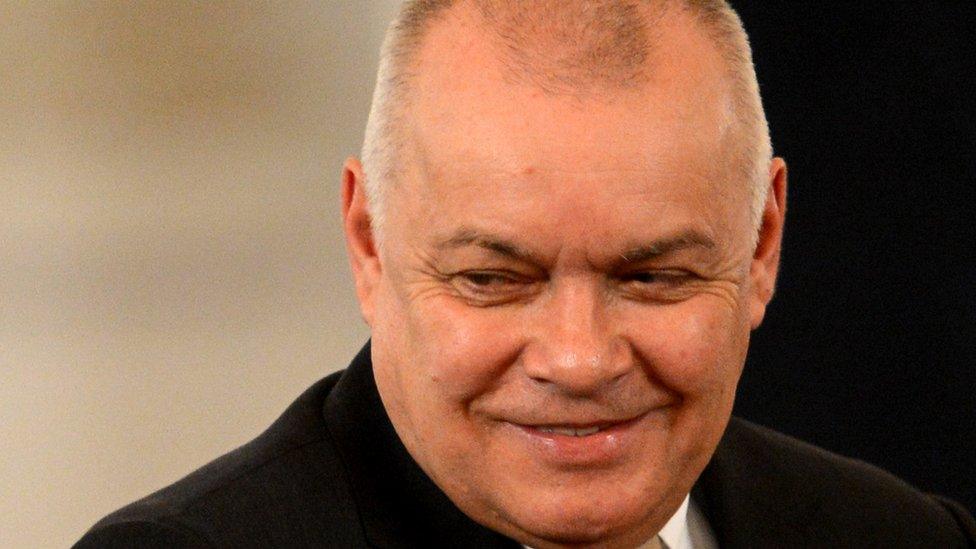
TV presenter and spin doctor Dmitry Kiselyov argues that some things are more important than package holidays
"Business to some places was already down by up to 50% because of the weak rouble and people having less spending power," says Anna Podgornaya, general director at Pegas Touristic.
European travel was one of the worst hit.
"The need for visas for Europe will definitely mean another drop in sales, especially in the provinces," she believes. "So it's tough."
Public support for the travel restriction is perhaps partly because it is low season in Turkey now. The real test will come in spring, if there is no reconciliation before then.
So far, that looks unlikely.
"President Erdogan had his chance to apologise, and failed to take it," TV host Dmitry Kiselyov informed his huge audience on Sunday night. "Now, he will pay the price."
- Published1 December 2015
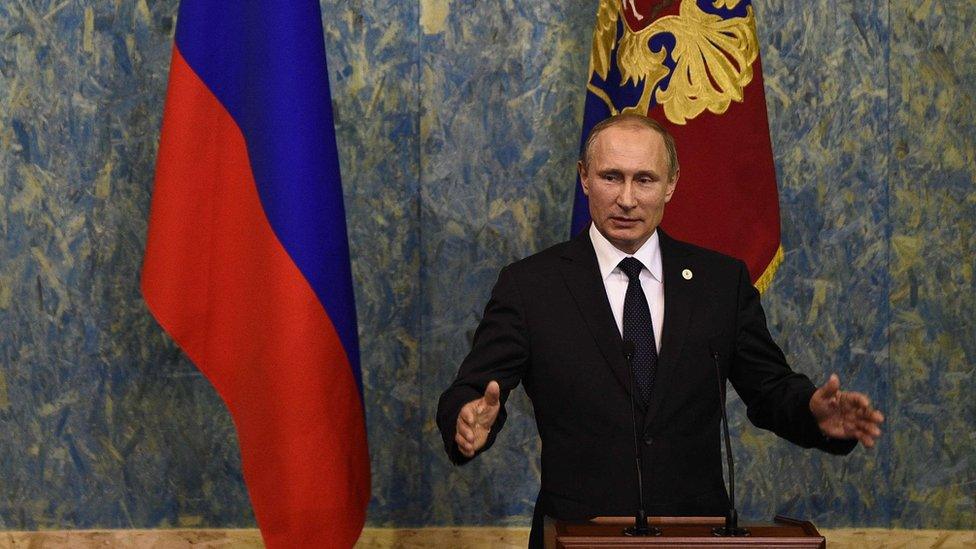
- Published26 November 2015
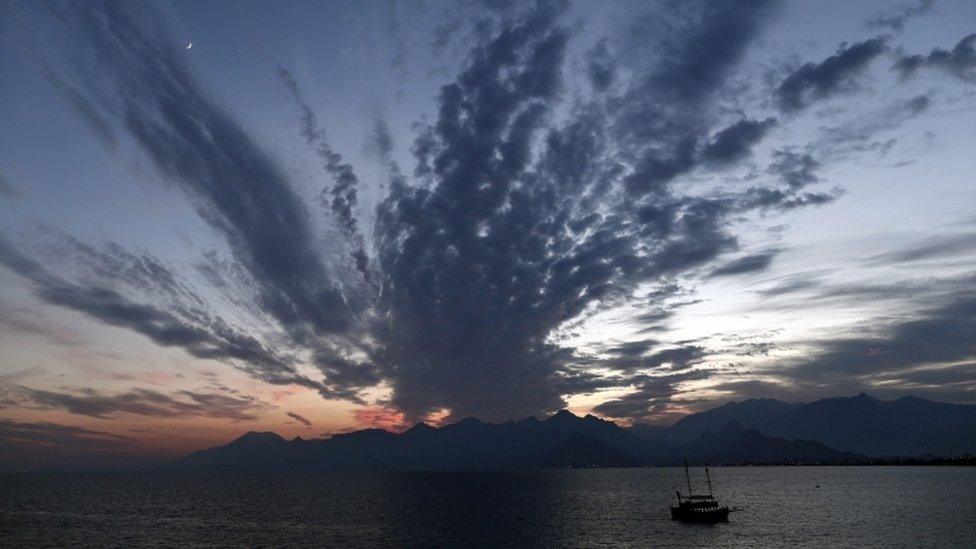
- Published2 April 2014
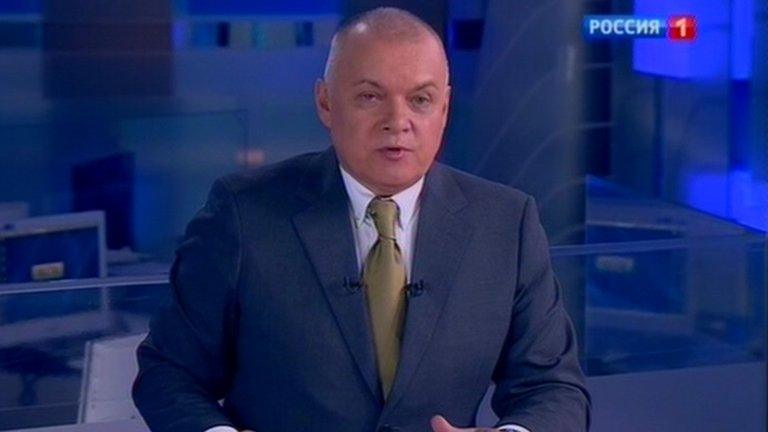
- Published1 December 2015
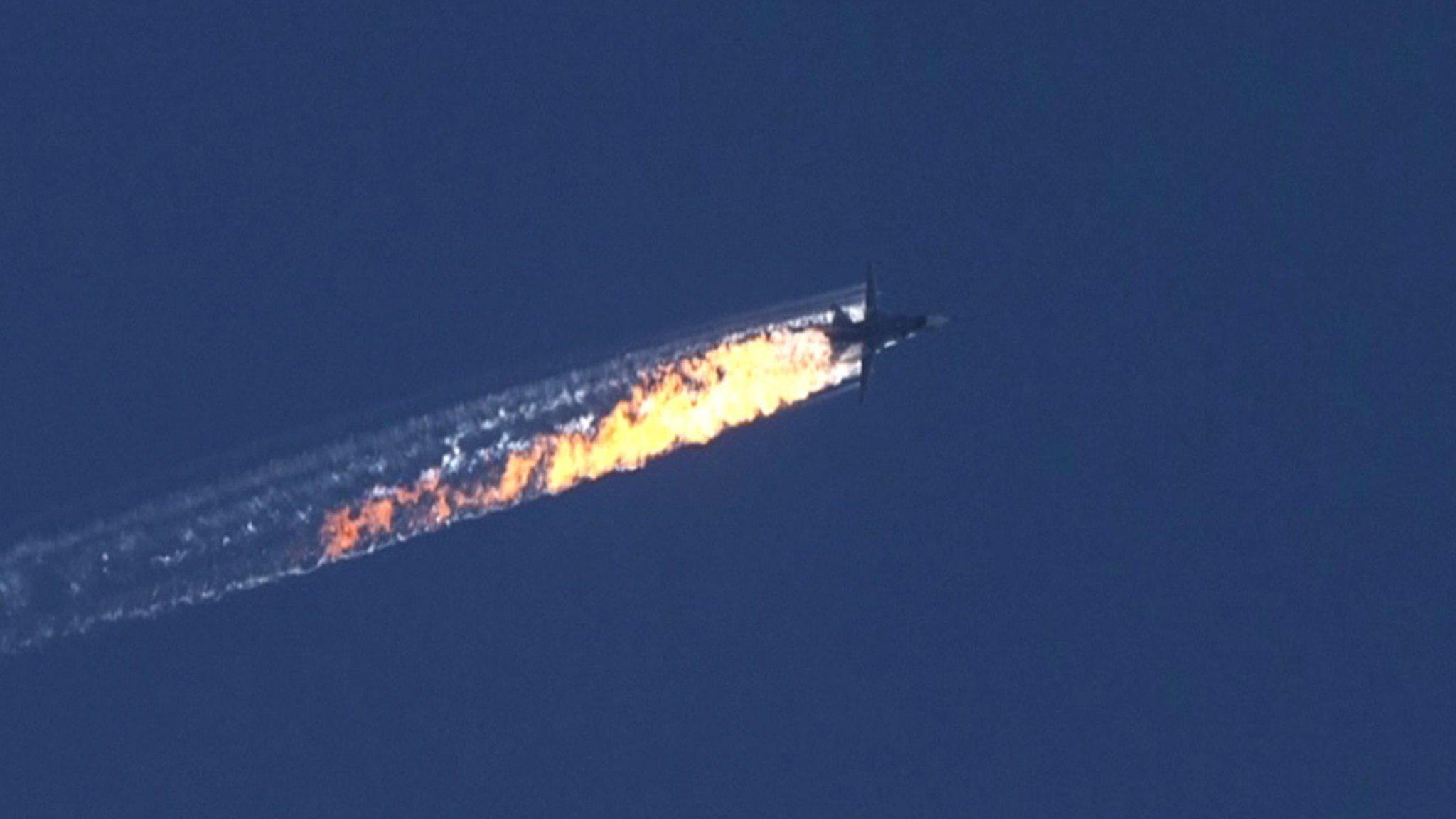
- Published8 October 2015
